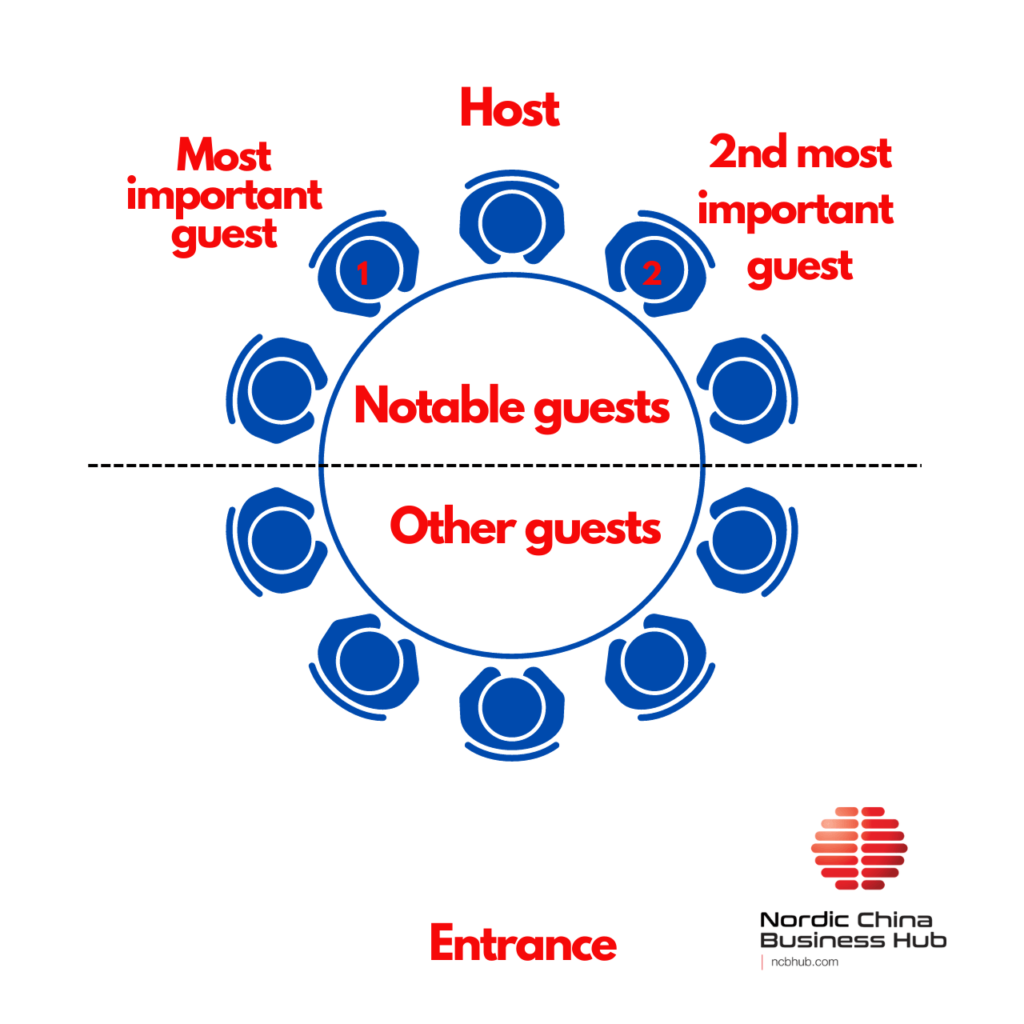Table of Contents
ToggleIntroduction
In the realm of international business, understanding and adhering to local customs can make or break partnerships. This is particularly true in China, where business dinners are not just about food but are a crucial part of building and maintaining professional relationships. Navigating Chinese business dinner etiquette requires an appreciation of the country’s rich cultural heritage and its influence on modern business practices.
Pre-Dinner Preparations
Before attending a business dinner in China, it’s essential to familiarize yourself with the attendees and the company’s background. Recognizing the significance of seniority is crucial as Chinese culture places great emphasis on hierarchy. This understanding will guide your interactions, from greetings to conversation topics.
Dress Code
Appearance matters in Chinese business settings. Opt for formal or business casual attire, paying attention to colors. For instance, red symbolizes good luck, while black may be considered inauspicious. Dressing appropriately shows respect and sets a positive tone for the evening.
Arrival and Seating Arrangements
Punctuality is a virtue in Chinese culture. Arriving on time, or slightly early, is a sign of respect. Seating arrangements at a Chinese business dinner follow a strict hierarchy, with the most senior person seated furthest from the door. As a guest, wait to be directed to your seat.
Toasting and Drinking Etiquette
Toasting is a significant ritual at Chinese business dinners. The term ‘Ganbei’ (dry cup) may be used, indicating that you should finish your drink. However, it’s crucial to know your limits with alcohol. Politely participating in toasts, while maintaining professionalism, is key.
Dining Etiquette
Understanding basic Chinese dining etiquette is essential. Use chopsticks correctly and avoid taboos like sticking them upright in a bowl of rice. Dishes are usually shared, and it’s polite to try a bit of everything. The pace of eating should match that of your hosts.
Conversation Topics
Engage in light, neutral conversation topics such as culture, travel, and general business. It’s advisable to steer clear of politics and other sensitive subjects. Showing interest in Chinese culture and history can be a good way to build rapport.
Gift Giving
In some instances, gift-giving can be a part of the business dinner experience. Gifts should be thoughtful and not overly extravagant. Pay attention to how you present and receive gifts, using both hands as a sign of respect.
Conclusion
Mastering the nuances of Chinese business dinner etiquette is essential for anyone looking to forge successful business relationships in China. By showing respect for local customs and practices, you demonstrate not only cultural sensitivity but also a commitment to fostering a long-term, respectful partnership. Remember, in China, business is as much about building personal connections as it is about professional dealings.
FAQs
Q1: Why is understanding business dinner etiquette important in China?
- A1: In China, business dinners are crucial for building and maintaining professional relationships. Understanding and adhering to local customs at these dinners can significantly impact the success of business negotiations and partnerships.
Q2: What should I know about dress code for a Chinese business dinner?
- A2: Opt for formal or business casual attire, being mindful of color symbolism. Red is seen as lucky, while black might be considered inauspicious. Dressing appropriately is a sign of respect and professionalism.
Q3: How important is punctuality for these dinners?
- A3: Very important. Being on time or slightly early is seen as a sign of respect in Chinese culture. It demonstrates your seriousness and respect for the hosts.
Q3: How should I handle toasting and drinking at a Chinese business dinner?
- A4: Participate politely in toasts, commonly indicated by the phrase ‘Ganbei’ (dry cup). It’s important to know your alcohol limits and maintain professionalism throughout the evening.
Q5: What dining etiquette should I be aware of?
- A5: Use chopsticks correctly and avoid placing them upright in a bowl of rice. It’s polite to try a little of every dish served, and match your eating pace with that of your hosts.
Q6: Are there recommended conversation topics for these dinners?
- A6: Stick to neutral topics like culture, travel, and general business. Avoid sensitive subjects such as politics. Expressing interest in Chinese culture can be a good conversation starter.
Q7: What should I know about gift-giving at a business dinner in China?
- A7: If giving a gift, choose something thoughtful but not too extravagant. Present and receive gifts with both hands to show respect.
Q8: How significant is understanding these etiquettes in the context of long-term business relationships?
- A8: Very significant. Respecting Chinese business dinner etiquette is key to building trust and long-term relationships. It shows your commitment to understanding and valuing the local culture and business practices.
Contact us if you need legal help in China, like drafting effective cease and desist letters, drafting contracts that follow Chinese law and are enforceable in China, background investigation of Chinese companies, protecting patents, trademarks, copyright, and verification of contracts to the law in China, help with trade and IP disputes in China, etc.
If you require our assistance or have further questions about our services, please do not hesitate to contact our Customer Relationship Manager, Jan Erik Christensen, at janerik@ncbhub.com. We look forward to hearing from you and helping your business succeed in China.








